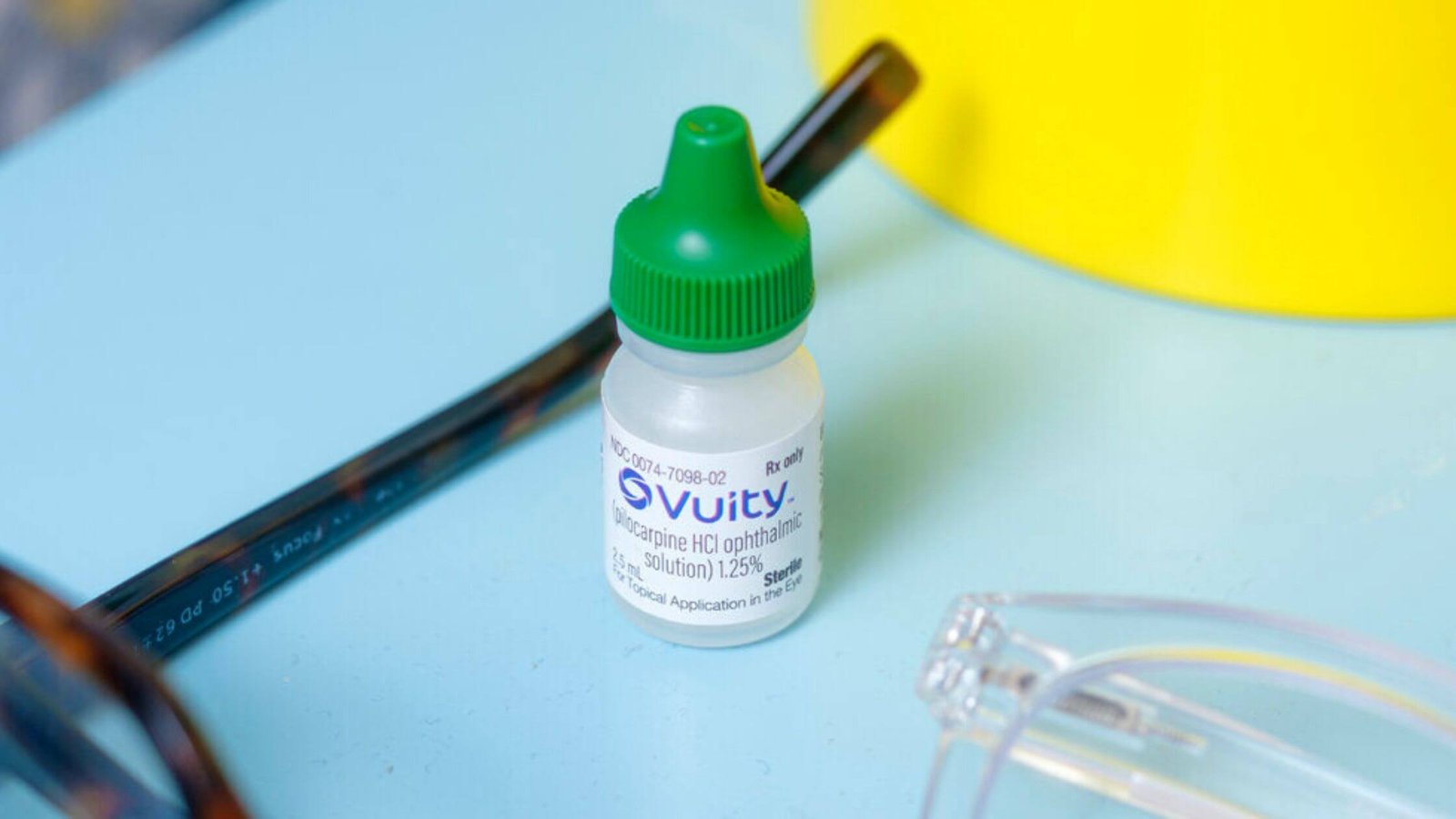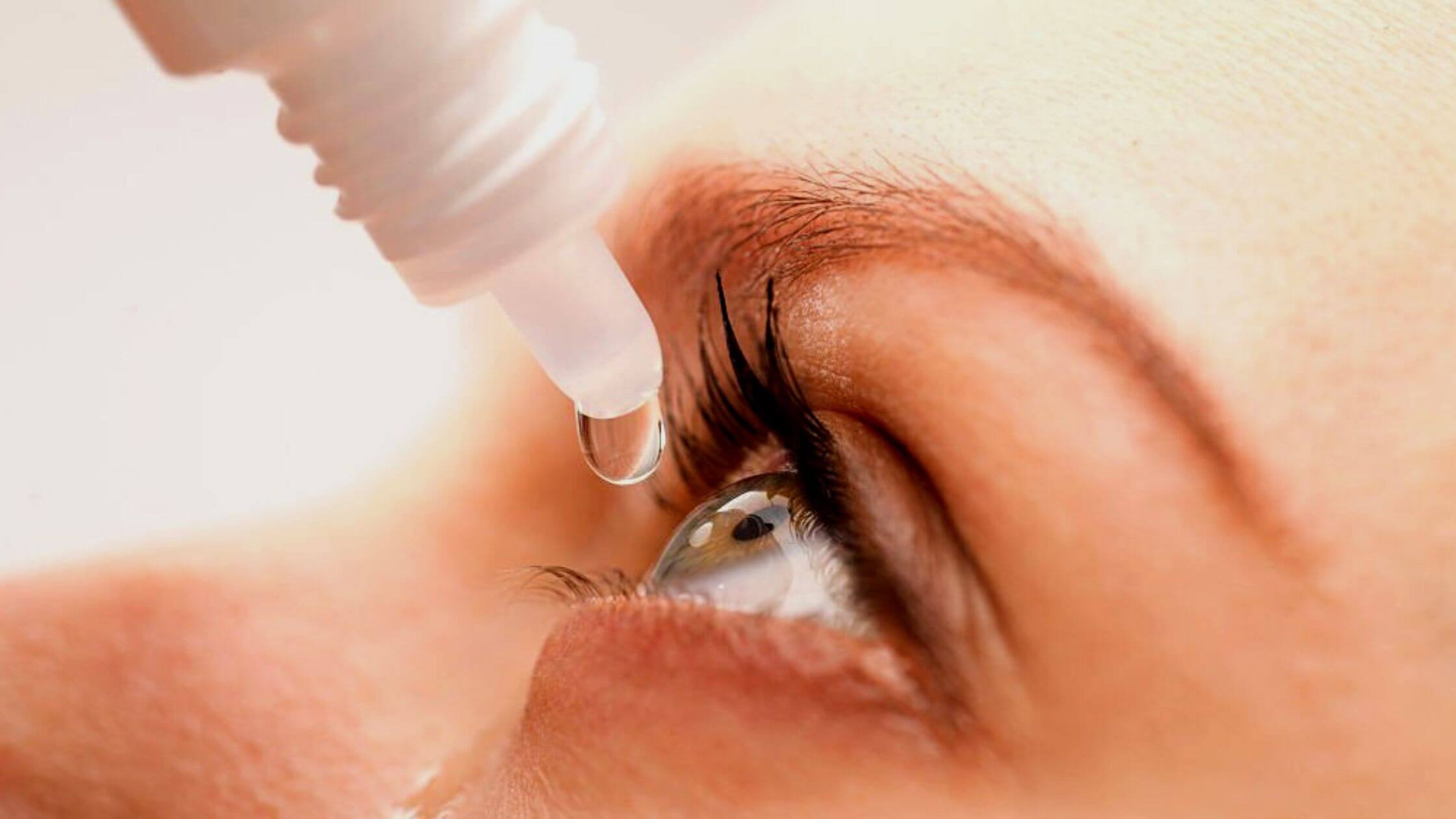Key Takeaways-
- Vuity eye drops can correct near vision problems for 6-8 hours
- They are approved by the FDA after successful clinical trials
- Beginning phases, some users may experience mild eye strain, strictly advised against driving at night
Can Vuity Eyedrops Improve Vision?
Are you tired of carrying your reading glasses around all the time? These new FDA-approved eye drops from Abbvie can solve most of your problems with blurry near vision (presbyopia) in just 15 minutes.

Vuity, the newly approved and first-of-its-kind eye drops are here for correcting mild and intermediate levels of presbyopia which eliminates your need to depend on reading glasses.
Within 15 minutes of applying these eye drops you can enhance your vision for up to 6-10 hours without affecting your distance vision.
How Do Vuity Eye Drops Work?
Vuity eye drops are made using pilocarpine medication which constricts the pupils to improve close-range vision. Pilocarpine isn’t a newly discovered medication. In fact, it has been used for decades to treat several medical conditions and for constricting the pupil to perform certain eye procedures.
The new pilocarpine hydrochloride ophthalmic solution (Vuity’s formula) has been approved for use by the FDA after this new formulation was perfected to work more gently and its effects lasted for a longer duration.
These eye drops which can be used daily, take effect within just 15 minutes or less and can last more than 6 hours.
In terms of pricing, staying with your reading glasses may be more economic as a 30-day prescription drop bottle of Vuity costs around $79. However, these eye drops don’t interfere with your distance vision so they may be more convenient to use than reading glasses.
The Clinical Trials :
Vuity eye drops were successfully tested in two phase 3 clinical trials with over 750 presbyopic participants between the age of 40 and 55. A considerably high percentage of the participants of this study group who were given Vuity drops were able to perform better in vision tests compared with those that were given a placebo.
They were able to read more than 3 more lines on an eye chart in low light without compromising their distance vision.
“Reducing the pupil size expands the depth of field or the depth of focus, and that allows you to focus at different ranges naturally,” George Waring, MD, the lead researcher for the clinical trial, has told reporters from CBS during their interview on Vuity.
Are There Any Side Effects Of Using Vuity Eye Drops?
The constriction of the pupil for long hours can tire your eye muscles which can lead to eye strain that can manifest as headaches, eye redness, eye irritation, increased tear production, etc.
Constricted pupils may compromise peripheral vision for some people as well.
These drops are not meant for use in low-light situations, so it’s advised not to use them while driving at night.
When asked about these side effects Dr. Waring says “This is something that we anticipate will be well-tolerated long-term, but this will be evaluated and studied in a formal capacity”.
Prevalence Of Presbyopia In The Aging Population:
Also referred to as ‘dysfunctional lens syndrome’, presbyopia is a very common age-related condition that gradually reduces the ability of the lens to change shape easily and focus on nearby objects. It leads to near vision loss where close objects appear blurry.
Presbyopia can start anywhere in the mid-40s and gradually worsens until 60-65.
It is part of the normal aging process of our eyes, and it affects more than 100 million Americans and about 1.1 billion people globally.
Several genetic and environmental factors dictate the pace of progression and severity of the condition that affects the individual. There is no known cure but we can slow down the progression by following healthy lifestyle choices and using vision-correcting lenses to deal with the condition.
What Are The Other Ways To Improve Close-Range Vision?
Some of the other widely used methods of improving near vision include:
- Bifocal and monovision contact lenses
- Monovision laser surgery
- Lens implants
We advise that you consult your ophthalmologist for a thorough assessment of your condition and to discuss the various treatment modes suitable for you. They will be able to prescribe the right treatment according to the severity of your presbyopia and the one which fits your unique lifestyle.
